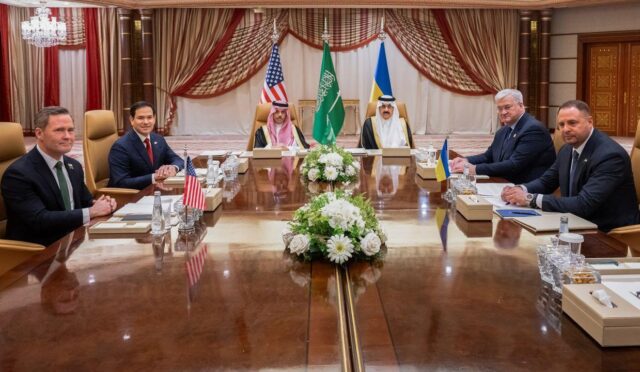A Global Call for Ceasefire in Sudan
On Tuesday, Britain and European Union countries spearheaded international appeals for an “immediate and permanent ceasefire” in Sudan as the conflict ravages the nation into its third year. The urgent call accompanied pledges exceeding 800 million euros (about $909 million) in new humanitarian aid, aimed at alleviating the severe impact of the ongoing war on civilians.
The final statement from a London conference emphasized the importance of safeguarding Sudan’s territorial integrity, as international leaders gathered despite the absence of the conflict’s instigators and military leaders. The war has caused unprecedented displacement and suffering, leaving more than 13 million people uprooted and resulting in tens of thousands of fatalities in what the United Nations has classified as a humanitarian catastrophe.
Conflict Overview and Humanitarian Crisis
The conflict erupted on April 15, 2023, ignited by a bitter power struggle between rival generals leading Sudan’s military and the paramilitary Rapid Support Forces (RSF). This precarious situation has led to numerous atrocities, with advocates emphasizing that both sides must be held accountable for the ongoing violence.
As discussions commenced, UK Foreign Minister David Lammy called on all involved parties to prioritize the welfare of civilians and the uninterrupted provision of humanitarian aid. He underscored the dire situation, depicting a scenario where civilians face extreme levels of violence, including beheadings and sexual assaults.
Call for Inclusive Peace Talks
Despite various peace initiatives failing to yield positive results, Lammy condemned the abandonment of Sudan amidst widespread civilian suffering. He stressed the moral obligation to act when so many innocents are at risk, highlighting the need for constructive dialogue.
African Union Commissioner Bankole Adeoye reinforced this sentiment, advising that there is no military resolution to the crisis and there must be an immediate cessation of hostilities. He urged for inclusive peace negotiations representing all factions, emphasizing the importance of engaging diverse stakeholders in the resolution process.
Escalating Humanitarian Needs
A recent UN-backed assessment has determined that parts of Sudan are suffering from famine, with over 30 million individuals in desperate need of assistance. Alarmingly, among those affected, nearly 12 million women and girls are vulnerable to gender-based violence.
In response to this escalating crisis, Lammy announced a substantial aid commitment of 140 million euros ($159 million), while the EU pledged over 522 million euros ($593.1 million). Germany and France also made significant pledges, further underscoring the urgency of international support for Sudan.
Spotlight on Refugees and Testimonies of Horror
During her visit to a refugee camp, German Foreign Minister Annalena Baerbock expressed profound concern over the humanitarian crisis, recounting chilling stories of violence inflicted on women and children. Her accounts brought to light the harrowing realities faced by those fleeing the conflict.
These first-hand testimonies highlight the necessity of immediate action and the need to address the root causes of the violence, as well as the plight of millions caught in the crossfire.
Diplomatic Dynamics and Regional Implications
The conference in London was co-hosted by Germany, France, the EU, and the African Union, with attendance from global powers like the United States and Saudi Arabia. However, Sudan’s government expressed discontent over not receiving an invitation, pointing to its own inability to engage meaningfully in peace talks.
Amidst rising tensions, Sudan accused the United Arab Emirates of supporting the RSF with arms, which the UAE vehemently denied. This ongoing situation raises questions about regional stability and the broader implications of foreign involvement in the conflict.
Commitment to Preserving Sudan’s Unity
French Foreign Minister Jean-Noel Barrot reiterated the necessity of maintaining Sudan’s unity, asserting that a unilateral government imposed upon civilians would not be admissible. This statement reflects a broader concern amongst international leaders that fragmentation could exacerbate the already dire humanitarian crisis.
The conflict between Sudan’s regular army, led by Abdel Fattah al-Burhan, and the RSF, headed by Mohamed Hamdan Daglo, stems from a tumultuous political history, including the 2021 coup that toppled a fragile transitional government. As the situation continues to unfold, the world watches closely, hoping for a resolution that respects Sudan’s sovereignty while addressing the urgent needs of its people.







